Suriname was first discovered by the English in the early 16th century, but was тАШтАЩgivenтАЩтАЩ to the Dutch in return for the city of тАШтАЩNew AmsterdamтАЩтАЩ in America, which the English would promptly rename тАШтАЩNew YorkтАЩтАЩ. ┬аThe economy of Suriname was heavily reliant on African Slaves working on plantations, and so after slavery was abolished in 1837, there was an influx of indentured labourers from India and the Dutch East Indies (Indonesia) sent to fill the void, and over time, immigrants from China, Japan and the Middle East would move to Suriname for work. Thereby, becoming a melting pot, stewing with the most diverse populations in the world; Indians form the majority ethnic group with 27% and Suriname is the largest Dutch-speaking area outside of Europe.
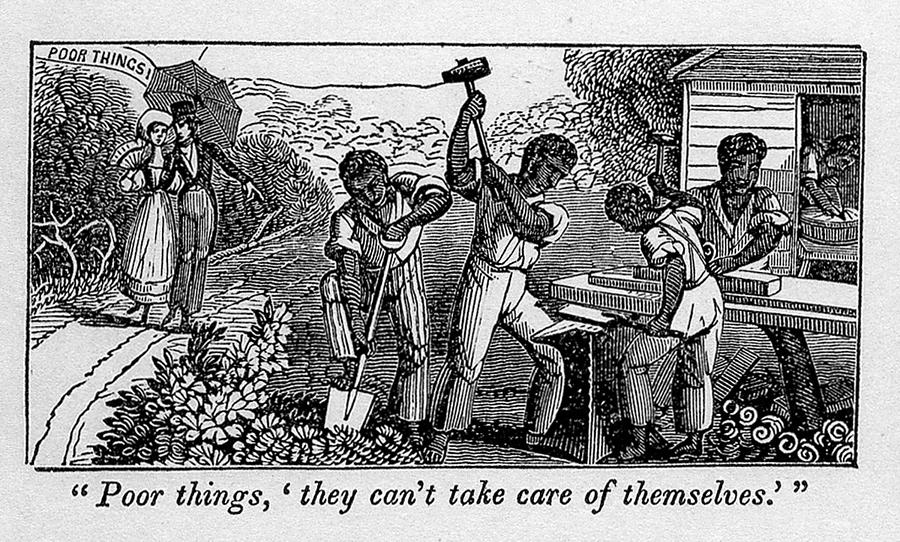
Paramaribo is the capital of Suriname, a cauldron of tropics, where rivers flow through the wave of multiculturalism throughout the country. Forest is in abundance, itтАЩs a place where nature is truly laid out in all its glory and distinctly falls under the тАШтАЩoff-the-beaten-trackтАЩтАЩ section in any tourist guide. But like most foundations built on slavery, and held up by oppression, lurking underneath the travel-brochure exterior, a grimy past is hidden away. Among other things, in 1980, the country came under military dictatorship, and two years later, fifteen young men who spoke up against the dictatorship, mainly journalists and university professors, were tortured and murdered.
One of these men was Andre Kamperveen, a former footballer who not only captained Suriname in the 1940s, but also played professionally in both Brazil and Holland, the first Surinamese player to do so. He would go on to become a successful sports administrator, helping to found the Caribbean Football Union and becoming its first President, whilst also later becoming a Vice-President of FIFA. ┬аHis legacy lives on in Suriname, where the National Stadium is named after him.
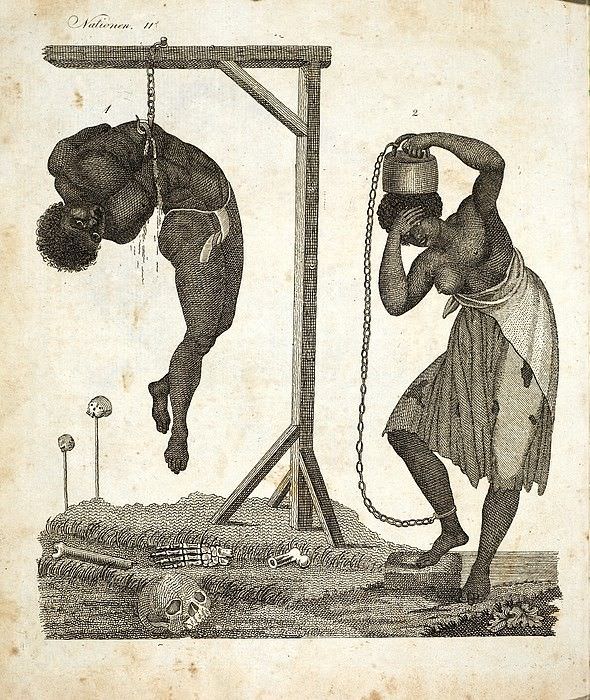
The December Murders provoked outcry internationally and the Netherlands even suspended its development aid to Suriname in protest. The leader of Suriname during these murders, Desi Bouterse, is currently President of the country and remarkably, has an arrest warrant on his head from Europol, having been convicted in absentia of drug trafficking by the Netherlands Government, but unable to be deported due to Suriname not having an extradition treaty with the Netherlands, an ironic notion bearing in mind the mass immigration which has historically occurred between the two countries. ┬а┬а
After Independence was achieved in 1975, around 200,000 of the population left to gain Dutch citizenship, and this massively hindered the development of the country, whilst substantially benefitting the long-term footballing status of the Dutch national team. Edgar Davids, Clarence Seedorf, as well as modern players such as Ryan Babel and Nigel De Jong were all raised in Holland by parents who left Suriname during that chaotic period of Surinamese migration.
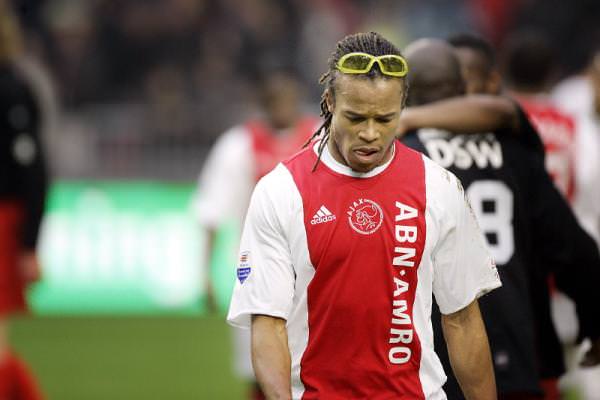
When Ajax won the Champions League crown in 1995, it was a Surinamese core that aided them. Famously in the mid-90s, the Dutch national team featured substantial Surinamese players (including Aaron Winter, the only player of Indian origin to score at a World Cup finals), yet was a team initially clouded in disunity. Edgar Davids was sent home from Euro 96 for eloquently stating that coach Gus Hiddink тАШтАЩmust get his head out of playerтАЩs assesтАЩтАЩ. It was rumoured by the media that the Surinamese players segregated themselves from their white colleagues and thus the media named these players as тАШтАЩDe KabelтАЩтАЩ (the cable). Although at the World Cup 1998 there were no reports of squad segregation despite the same players featuring in the squad, the whole тАШтАЩDe KabelтАЩтАЩ incident merely highlighted how the Dutch and their media often viewed Surinamese players as being different and separate to the Dutch national identity. One wonders if the option was available, how many players of Surinamese descent during this era would have played for their motherland.
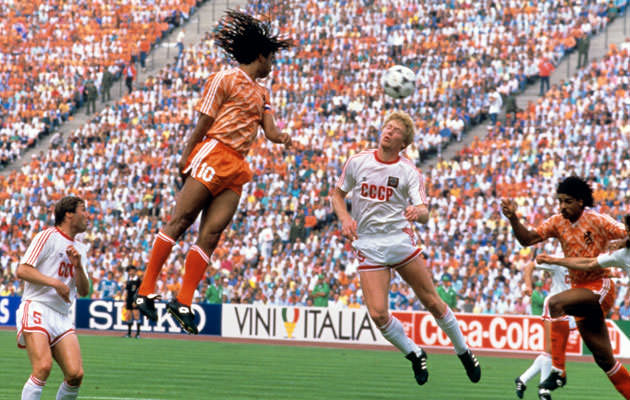
Between 1993 and 2013, every year a charity match was played between a team made up of players of Surinamese origin and a specially invited team. In 2005, Nigel De Jong, Edgar Davids and Mario Melchiot all played for тАШтАЩDe SuriprofsтАЩтАЩ as they are known, and the match was symbolic of the strong pride many Dutch players felt for their Surinamese roots.
2014 seemed to be the year that turned the tide for Suriname. There were strong rumours that the Surinamese government was considering installing a dual nationality system in the country immediately, meaning the football team would finally be able to call upon the diaspora to represent them. Plans were made and a тАШтАЩSuriname European XIтАЩтАЩ side was assembled to play a friendly vs Trinidadian club W Connection in Suriname during December 2014. A hundred players of Surinamese origin were contacted, and 85 replied that they were willing to commit to playing for the country should the law change.
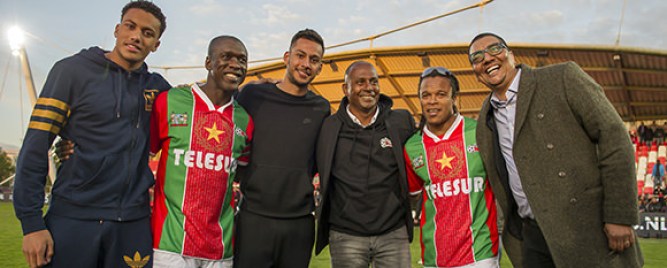 Players of Suriname origin: (L-R)┬аJairo Riedewald, Clarence Seedorf, Ricardo Kishna, Aron Winter, Edgar Davids, Jurgen Raymann
Players of Suriname origin: (L-R)┬аJairo Riedewald, Clarence Seedorf, Ricardo Kishna, Aron Winter, Edgar Davids, Jurgen Raymann
┬аSome players were not allowed to fly to Suriname for the game, such as Marvin Emnes, who was playing in the Premier League for Swansea at the time, and Ryan Donk, who is currently at Real Betis. Nevertheless, the match was still a success, as Suriname drew on many players from the Eredivisie, including Jimmy Floyd HasselbainkтАЩs nephew, Nigel and Lorenzo Davids, cousin of Edgar and a former Netherlands Under-21 player. ┬аThe match captured the publicтАЩs imagination in Suriname, with a capacity crowd watching the game at the Andre Kamperveen stadium for the first time since the 1970s. The game ended 1-1 and Suriname lost on penalties, but the result was irrelevant, a mere symbolic numerical statistic that was a mere dot on the bigger picture, the start of SurinameтАЩs bright footballing future.
Yet unfortunately, the plans to allow dual nationality never came to fruition and the grand ambitions of the Surinamese footballing community had to be shelved. It was a massive blow to their hopes of one day qualifying for a maiden World Cup. The current Surinamese national side contains only one player who plays club football outside of the country, so, for the most part it is an entirely local-based squad. The Surinamese domestic league, known as the SVB Topklasse, although not a professional league, it has been running since 1924. The most successful club in the history of the country is uniquely known as Robinhood.
On the international stage, the country was eliminated from 2018 World Cup qualifiers by Nicaragua, yet did have a successful run in recent 2017 CONCACAF Gold Cup qualifiers, where they defeated English-speaking neighbours Guyana and regional powerhouses Trinidad and Tobago before being eliminated by Haiti, which meant they finished 6th in the region, and moved up 22 places in this monthтАЩs FIFA World rankings to 128th.
Of course, it would be naive to suggest that players who left Suriname to grow up in Holland, with first class facilities and coaching available to them, would be the same players if they stayed in Suriname, where facilities are scarce and professional football non-existent. Yet it does have a hint of tragedy that such a small country can produce such an array of raw talent and then not be able to reap any benefit from it whatsoever. ┬аLiverpool star Georginio Wijinaldum and Tottenham goal-keeper Michel Vorm are just two current stars who would qualify to represent Suriname if dual nationality was available, but simply cannot represent them even if they wanted to. ThatтАЩs not forgetting the estimated 150 professionals currently playing in Holland who could be eligible due to having Surinamese parents.
The Suriname team of 1998, in another reality, probably won the world cup.
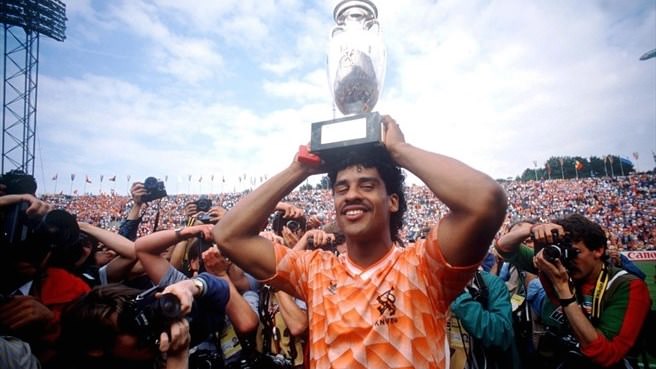
Liked the article? Help us fight click-bait content:
![]()
Santokie Nagulendran
Writes about football across the globe, which provides a therapeutic release from the emotional turmoil of supporting Tottenham Hotspur
Source link : https://www.footballparadise.com/introducing-the-best-team-the-world-never-had-suriname/
Author :
Publish date : 2017-02-01 03:00:00
Copyright for syndicated content belongs to the linked Source.












